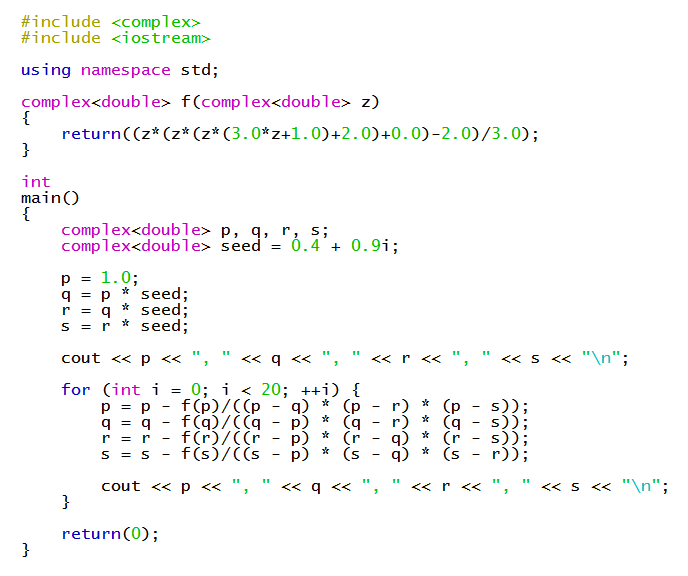How do you use the rational roots theorem to find all possible zeros of # P(x) = 3x^4 + x^3 + 2x^2 - 2#?
1 Answer
This quartic has no rational zeros, but we can find approximations:
#x_1 ~~ 0.694795#
#x_2 ~~ -0.800431#
#x_(3,4) ~~ -0.113849+-1.08894i#
Explanation:
#P(x) = 3x^4+x^3+2x^2-2#
By the rational root theorem and rational zeros of
That means that the only possible rational zeros are:
#+-1/3, +-2/3, +-1, +-2#
None of these works, so
As a quartic, it is possible to solve
Here's a C++ program for this quartic...

Hence we can find approximations:
#x_1 ~~ 0.694795#
#x_2 ~~ -0.800431#
#x_(3,4) ~~ -0.113849+-1.08894i#

